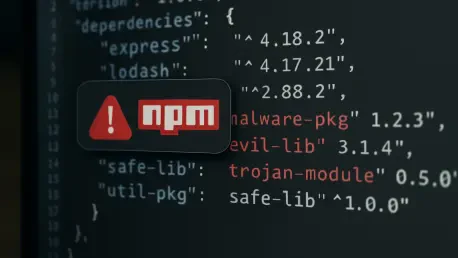
What happens when a single misstep in system settings transforms a powerful macOS device into an open door for cyber attackers, especially in creative industries like design studios and media houses where Macs dominate and such oversights are alarmingly common? A misplaced permission or an outdated

In an era where cyber threats loom larger than ever, organizations face the daunting reality of data breaches that can cripple operations and tarnish reputations in mere moments, making the need for robust security undeniable. Endpoints—ranging from laptops and smartphones to IoT sensors—serve as

The software development landscape is under siege from an insidious threat: malicious npm packages that infiltrate the Node.js ecosystem, compromising the very foundation of countless applications. With over 86,000 downloads of 126 harmful packages tied to a single campaign since August of last

What happens when a revolutionary tool designed to turbocharge software development ends up creating a maze of hidden dangers that threaten the stability of digital systems? In 2025, AI-powered code generation, once celebrated as the ultimate productivity booster, is now at the center of a heated

Unveiling a Digital Menace In an era where digital transactions underpin global economies, state-sponsored cybercrime has emerged as a formidable threat, with North Korea's BlueNoroff group standing at the forefront of this shadowy landscape. Reports indicate that cyber operations linked to such

I'm thrilled to sit down with Rupert Marais, our in-house security specialist with extensive expertise in endpoint and device security, cybersecurity strategies, and network management. With a career dedicated to safeguarding digital environments, Rupert offers a unique perspective on the evolving